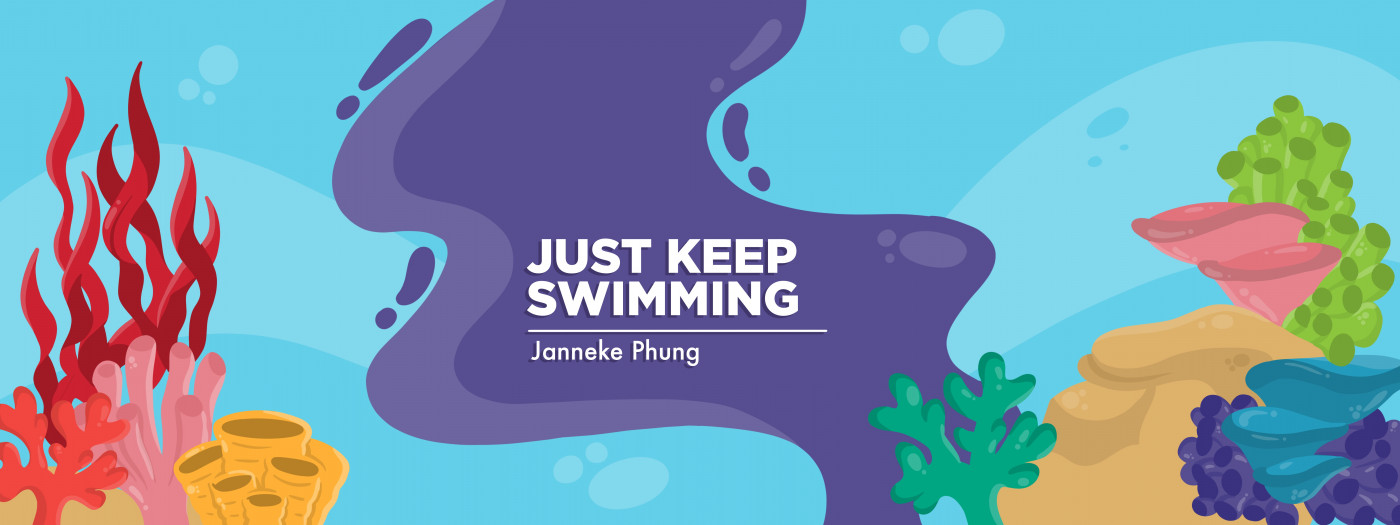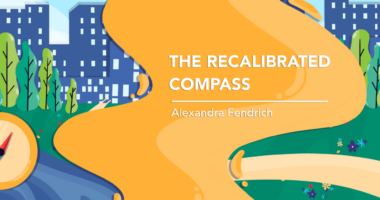Trading the personal effects of victimhood for positive self-talk
How what I say to myself affects my ankylosing spondylitis identity

“Oh, no! We forgot to burp the carrots today!” my 5-year-old son exclaimed with alarm as we waited to see the chiropractor.
The appointment was a little break from our morning home-schooling routine. I looked over at him, chuckled as I saw a sticker on his forehead that read “well-adjusted chiro kid,” and assured him that I had “burped” the jars of carrots in the process of fermenting earlier that morning. While he worried about burping carrots, I pined about where to find a source of chicken feet to make my meat stocks more gelatinous.
At that moment, I realized that ankylosing spondylitis (AS) had turned me into somewhat of a (s)crunchy granola mama. When my babies were born before my AS diagnosis, I didn’t really consider cloth diapering, but now I probably would. My oldest started in public school, but around the time I learned about my AS (and COVID-19 happened), we pulled him out and have been happily home-schooling since.
It’s true: I prefer that my kids eat plain yogurt and granola over Oreos and macaroni and cheese. I’m trying to figure out how to make kombucha, and maybe, if this continues, I’ll be wearing wool clothing from my own sheep in the near future. What happened to me?
I joke about it, but the transformation is real and goes beyond what’s visible.
My name is Janneke Phung. My identity? I’m a follower of Jesus Christ — a child of God. I’m the wife of a man who supports and loves me generously. I’m a mother to three fascinating and sweet boys. I’m a daughter, sister, and friend. And upon getting a diagnosis of ankylosing spondylitis in November 2019, I started thinking of myself as a victim of AS.
Regaining control
At first, when AS started to permeate all aspects of my life, I let it engulf my identity. My diagnosis confirmed that I was no longer a healthy person. I’d become a person with a disease for which there was no cure. I clearly remember the day I looked at myself in the mirror and realized, “You are sick. This disease is for life and will only worsen from here. Enjoy life as you know it because it’s all downhill from here.”
I felt like a victim, and my negative self-talk felt justifiable.
It took some time for me to indulge in the mentality of victimhood before I realized it wasn’t helpful. My new, self-labeled identity and self-talk were the cause of depression and anxiety. Allowing AS to engulf my identity was toxic. I needed to find a way to balance what I couldn’t control, such as healthcare, pain, and other external circumstances, with what was within my control.
One thing within my control, I realized, was self-talk.
“AS steals everything from me” could become “There’s much purpose in life, even with an incurable diagnosis.”
“AS interferes with marriage, raising a family, finding a successful career, and social life” could become “Even though life with disease presents challenges, it doesn’t mean I’ve received an automatic life sentence for pain, disability, and depression.”
“Both mainstream and alternative treatments require so much of me” could become “Many individuals, organizations, and institutions work tirelessly to support me.”
Diagnosis of an incurable disease is worthy of grief. With time, however, I learned that negative thoughts and a victim’s attitude weren’t helpful in managing my illness. Instead, practicing gratitude and acceptance has led me to recognize that positive changes have resulted from this illness.
Observing others in difficult situations, for example, has taught me that pain can be the source of beautiful transformation. Much as a diamond is formed under stress and pressure, pain can refine, enrich, and change people for the better.
I suppose my journey with AS has caused me to become more of a crunchy granola girl. But it’s also boosted perseverance, empathy, compassion, gratitude, and a wholesome respect for health and nutritious food.
Most importantly, to myself at least, my struggle with AS has gifted me perspective on this life and peace about what’s beyond. I pray that my weaknesses will be a great asset and that the pain experienced in this life will serve a great purpose.
Thanks for reading! You can learn more about my story, browse starch-free recipes, or peruse the stories of others who successfully manage their AS with diet and lifestyle modifications on my website. Join me on Instagram and Facebook for the latest updates and recipes.
Note: Ankylosing Spondylitis News is strictly a news and information website about the disease. It does not provide medical advice, diagnosis, or treatment. This content is not intended to be a substitute for professional medical advice, diagnosis, or treatment. Always seek the advice of your physician or other qualified health provider with any questions you may have regarding a medical condition. Never disregard professional medical advice or delay in seeking it because of something you have read on this website. The opinions expressed in this column are not those of Ankylosing Spondylitis News or its parent company, Bionews, and are intended to spark discussion about issues pertaining to ankylosing spondylitis.








H
It's easy for you to imply that AS did not interfere "with marriage, raising a family, finding a successful career, and social life” when you already met and married a man and had your kids before diagnosis. No man wants to marry a woman who already has AS and a severely deformed spine.
Janneke Phung
Hi H, thanks so much for your comment! I'm sorry if my column made it seem as though AS has not interfered "with marriage, raising a family, finding a successful career, and social life”. I am certainly grateful for where I find myself right now, but it would be false to state that I encountered no difficulties. My marriage, children, and diagnosis came after well over a decade of debilitating symptoms. There was a point at which I couldn't even lift my twin infants out of their cribs. I found a man who was willing to marry me, symptoms and weaknesses and all. It may feel like no man wants to marry a woman who already has AS but I believe a quality man looks at the heart and character. That's not to say that there aren't additional challenges - there definitely are. Grieving the loss of a seemingly more attainable spouse/family is valid and neccesary.